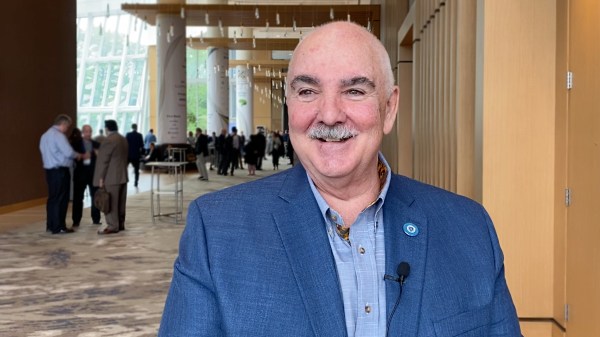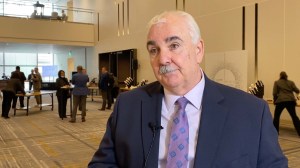Business and IT communication ‘very, very critical,’ state CIO says
A clear line can be drawn from the decisions made by a C-level IT official to the rest of the employees in the state government and on to the public at large. When a governor or chief information officer makes a policy decision or purchases a new computer system, it can change how the workers who rely on those systems do their work each day, which can then generate a downstream effect on the residents who rely on the work of those state employees, whether it’s to obtain basic information or receive help during an emergency.
While all CIOs are at risk of becoming detached from that reality, Massachusetts CIO Curtis Wood is acutely aware of it.
Appointed as Massachusetts CIO in June 2018, Wood brought with him more than two decades of experience working in public safety, including roles as undersecretary of the Massachusetts Executive Office of Public Safety & Security and a commissioner at the Massachusetts Department of Criminal Justice Information Services. Those roles, he told StateScoop in a recent video interview, made clear to him the tangible value of technology and his role in that chain of events.
“That career really prepared me for this, to really appreciate and understand the workforce out there and the criticality of really delivering real-time services to our state troopers, our police officers, our parole officers, probation officers, our correctional officers in a mission-critical environment, making sure our systems available 24/7/365,” Wood says. “Also making sure that we have the right mobile environment, they have access to the applications and the services they need.”
Emerging public-safety technologies in state government such as FirstNet, the nationwide data communications network for public safety officials now being deployed by AT&T, and next-generation 911, a network of digital multimedia-ready emergency call systems, are among the public safety systems recently falling under the providence of the chief information officer.
Wood says it’s critical the state provide proper support for all the tools and applications public safety workers need.
“And also from a shared services perspective, making sure we have the appropriate desktop support people. When the troopers are out on the highway, we’ve got to make sure that mobile environment works,” Wood says.
In Massachusetts, he adds, there are major events to prepare for, such as a Fourth of July gathering and the Boston Marathon, which in 2013 highlighted the utility of technology as police quickly tapped into surveillance footage to catch the Islamist terrorists who’d planted bombs that killed three and injured several hundred others.
To be the most effective, Wood says, it’s important to create a tight link between those who administer the technology and those who use it.
“[It’s] making sure our public safety IT people are actually part of that state police team or public safety team as first responders out there supporting those systems. Very, very critical,” Wood says.
Wood on his top priorities and projects:
“We’re focused on several major areas including cybersecurity, digital government, meaning we’re working on to really improve the experience of our constituents.”
Wood on digital services and mobility:
“On the digital service front over the last couple years we’ve focused on replatforming our Mass.gov environment, from an old clunky environment that was mostly posted documents, PDF files, we moved it into a new environment that gave it more portability, gave a better user experience to people, better navigation tools, more consistent feel and look for our folks.
Wood on how he sees his role changing in the future:
“[I also want] to convince and keep working with that business to make sure they understand that they have a huge responsibility, a huge role here, from an ownership of the data, ownership of the business applications, the cybersecurity, making sure that we’re all working together to understand how critical the IT function is, but more importantly how it actually works within our business environment.”
These videos were produced by StateScoop at the National Association of State Chief Information Officers’ annual conference in Nashville, Tennessee, in October 2019.


